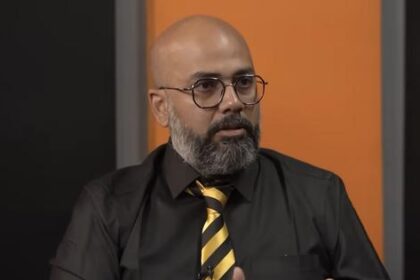Students allege university’s disciplinary measures were retaliatory and lacked substantial evidence.
Dr BR Ambedkar University Delhi has expelled three students—Sharanya Verma, Shefali, and Shubhojeet Dey—following an incident during a protest on April 11. The university alleges that these students attempted to physically assault the vice chancellor and damaged the registrar’s official car. Two additional students, Ajay VS and Keerthana Lakshmi, have been prohibited from entering the university campuses or seeking admission for further studies.
The expulsion orders were issued on September 25, prompting Dey to assert that the university’s actions were entirely “malafide” and devoid of evidence supporting the allegations. He firmly denied any attempt to assault the vice chancellor, asserting instead that the protesting students were subjected to violence by security personnel.
Aditya Pratap Singh, the university’s public relations officer, stated that the situation is currently under judicial review. He emphasized that the university cannot comment on the matter until the court reaches a decision.
The protests were initiated by a group of five students who were advocating for the revocation of suspensions imposed on three others—Nadia, Anan, and Harsh—who had reportedly raised concerns about a ragging-related suicide attempt by a second-year student. These three students faced suspension on March 5, accused of tarnishing the university’s reputation. Nadia was quoted as saying that the university attempted to minimize the seriousness of the incident.
According to the university, the expelled students obstructed university staff at the main gate, forcibly pushed security personnel, and engaged in what was characterized as an “organized and planned violent action.” However, Dey contended that these allegations are unfounded. He pointed out that CCTV footage shows security officials locking the gates with a chain, preventing the protesting students from meeting the vice chancellor.
Dey described the encounter, alleging that security personnel resorted to physical violence against the students, including male guards attacking some female participants. He claimed that one of the guards even used a baton inappropriately against him.
The protests intensified from March 5 until April 11, with students demanding the lifting of suspensions. Dey mentioned that a hunger strike was initiated on April 7, during which a participant lost consciousness, prompting an urgent request to meet the vice chancellor. Yet, they were met with resistance.
Highlighting procedural issues, Dey noted that the university’s own guidelines state that disciplinary proceedings should conclude within three months, while their expulsion order came after five months. He suggested that the delay itself served as a form of punishment imposed by the university.
In response to the expulsion, the affected students are preparing to approach the Delhi High Court to challenge the university’s decisions, seeking justice and redress for what they perceive as unjust treatment.








